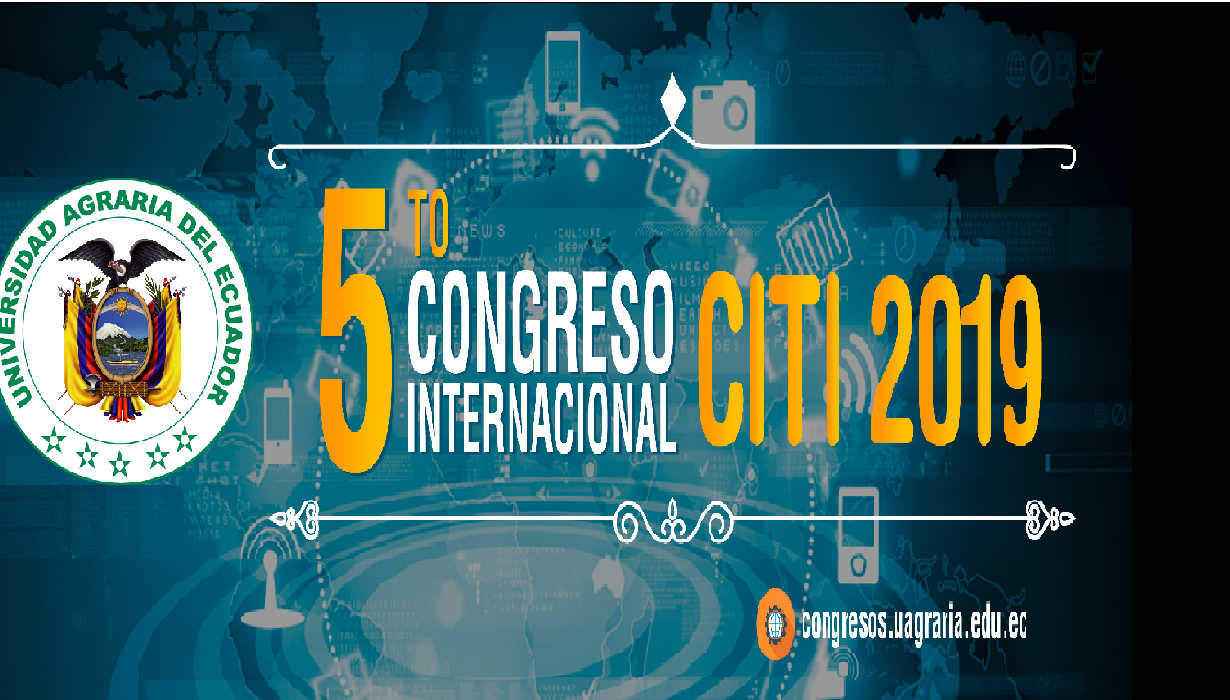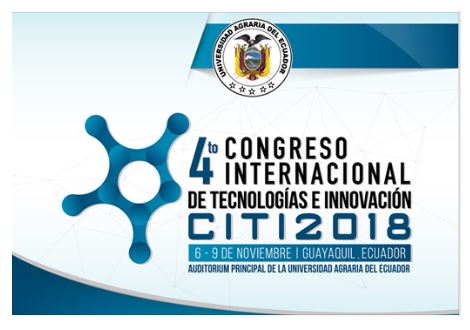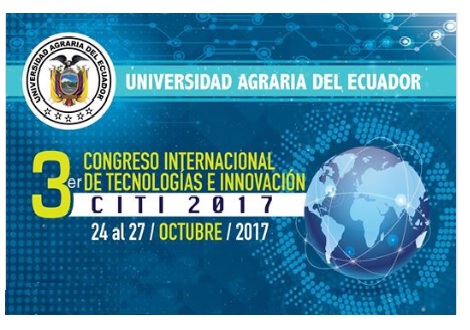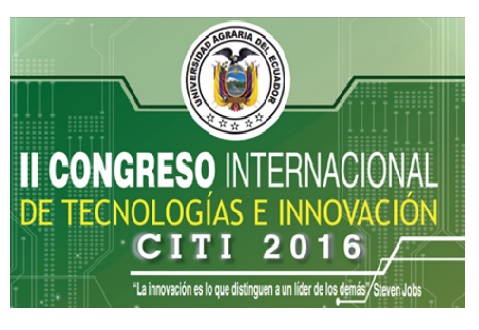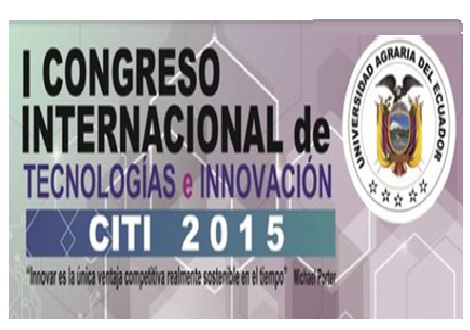Citi 2020
6Th International Conference on
Technologies and Innovation
CITI is an international event which pursues the promotion of research on Computer Science mainly in Ecuador and other South American countries. Nonetheless, CITI is open to the whole world. Papers from other countries will be very welcome.
The 6th International Conference on Technologies and Innovation (CITI2020) is a premier event that addresses new advancements in research, development, innovation and university teaching, within the field of computer science and technology. It aims to provide a platform for researchers to share their original work and practical development experiences.
The application of advanced and innovative methods and techniques are expected to constitute the line of the proposals, within the field of Computer Science and Information Systems that represent an innovation in the current society.
 |
 |
 |
Organization
Honor Committee
Organizing Committee
Scientific Comittee
Local Committee
Conferens

Expositor: DRA. ANA MUÑOZ GARCÍA
Senior Researcher - CENTRO DE INVESTIGACIÓN - INRIA CHILE
Título: ANATOMÍA DE UNA ONTOLOGÍA.

Expositor: ING. JOSE AGUIRRE ANDRADE
CEO FAINCA GROUP
Título: CÁLCULO DEL NIVEL DE PRESTACIONES SEGÚN LA NORMA ISO DE SEGURIDAD DE MAQUINA PARA CELDAS ROBOTICAS

Expositor: ING. OSCAR APOLINARIO ARZUBE
Jefe en Soluciones IOT Masivas y Corporativas - CLARO
Título: EL INTERNET DE LAS COSAS EN EL SECTOR ACUÍCOLA DEL ECUADOR

Expositor: ING. CHRISTIAN ROCHINA GARCIA
Director de Estadística del ATM – Autoridad de Tránsito Municipal
Título: EL USO DE LA TECNOLOGÍA COMO ALIADO ESTRATÉGICO EN LA GESTIÓN DEL TRÁNSITO Y SEGURIDAD VIAL
Schedule
Call of Paper
Computer science and technology have promoted the development of different types of innovation in current society in the last years, and in different sectors such as industry, businness, health and education.
The 6th International Conference on Technologies and Innovation (CITI2020) aims to become an international framework and meeting point for professionals who are preferently devoted to research, development, innovation and university teaching, within the field of computer science and technology applied to any important field of innovation.
CITI2020 has been organized as a knowledge-exchange conference formed by several plenary talks and contributions about current innovative technology. These proposals deal with the most important aspects and future prospects from an academic, innovative and scientific perspective.
The goal of the conference is the feasibility of investigating advanced and innovative methods and techniques and their application in different domains in the field of Computer Science and Information Systems that represent an innovation in the current society.
Topics
The conference pursues high-quality research contributions about innovative Computer Science technologies, helping to communicate and disseminate relevant recent research on this field. The goal is to provide a vibrant forum of discussion on theoretical and experimental contributions within the framework of new technologies.
Topics of interest for submission include, but are not restricted to:
Artificial Intelligence
Software Engineering
Cloud Computing
The conference particularly aims to:
Dates
Paper submission deadline: (16 June 2020) 10 July 2020
Acceptance notification: 20 August 2020
Paper registration: 04 September 2020
Camera ready: 04 September 2020
Conference dates: 30 November - 03 December 2020
Submission procedure
The papers must contain original, relevant and previously unpublished sound research results related to any of the topics of the conference. The papers must be submitted in English. The conference proceedings will be published with Springer in their Communications in Computer and Information Science series
Authors should prepare their manuscripts of 12-15 pages (Springer formatting guidelines), including figures and references.Submitting a paper implies that, should the paper be accepted, at least one of the authors will register and present the paper in the conference.
Submissions will be peer reviewed by at least three members of the international program committee based on relevance, originality, significance, quality and clarity. Accepted papers will be given guidelines for preparing and submitting the final manuscript(s) together with the notification of acceptance.
Authors of accepted submissions will be asked to give an approx. 20 minutes presentation of their research work. Presentations should include research results, interesting research questions, and open issues to be discussed during the conference.
Each accepted paper must have a corresponding registered author to be included in the proceedings. Papers that do not have an associated registered author will not be included in the proceedings.We cannot warrant the paper to appear in the proceedings if registration is not done within time limits
.
To submit or upload a paper please go to:
Registration to Conference until 20th November 2020
Registration
National Payment
Foreign Payment
Information
Paper registration (until 4th September 2020)
- Author information
- Article name
- Article acceptance by Easy Chair
- Attach Image payment (Transfer or Deposit)
Publication
All the accepted papers has been published in the Communications in Computer and Information Science series book series ISSN:1865-0937
The proceedings are available in the vol 1309 of CCIS in the following link.https://link.springer.com/book/10.1007%2F978-3-030-62015-8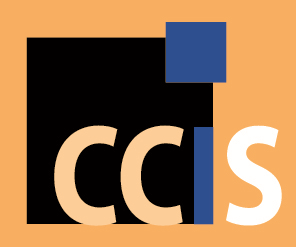
CITI 2020
CITI2020 includes both plenary talks and contributions about the latest technological advances. Proposals will deal with the most important aspects and future prospects from an academic, innovative and scientific perspective. The official language of the event is English.


